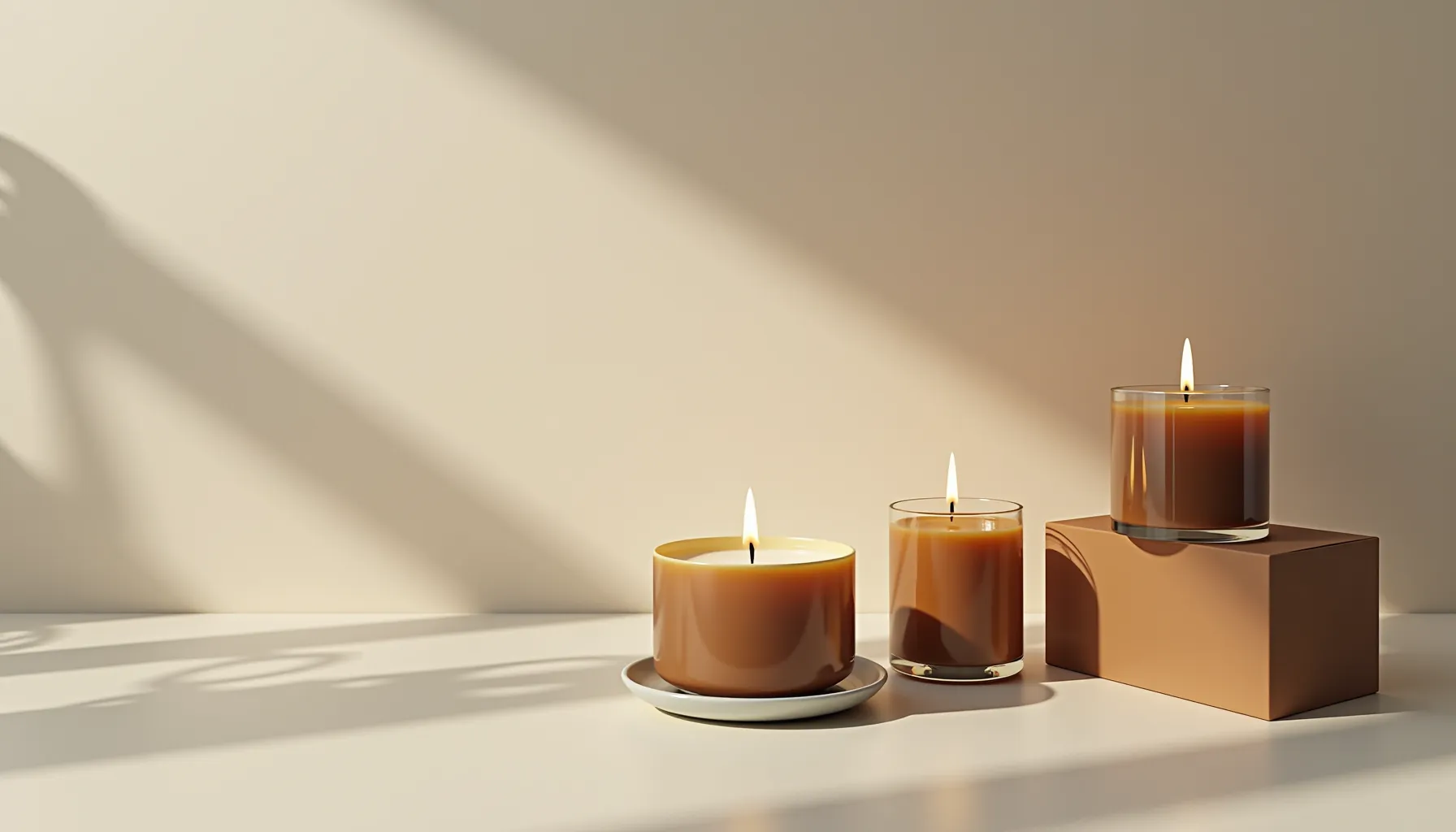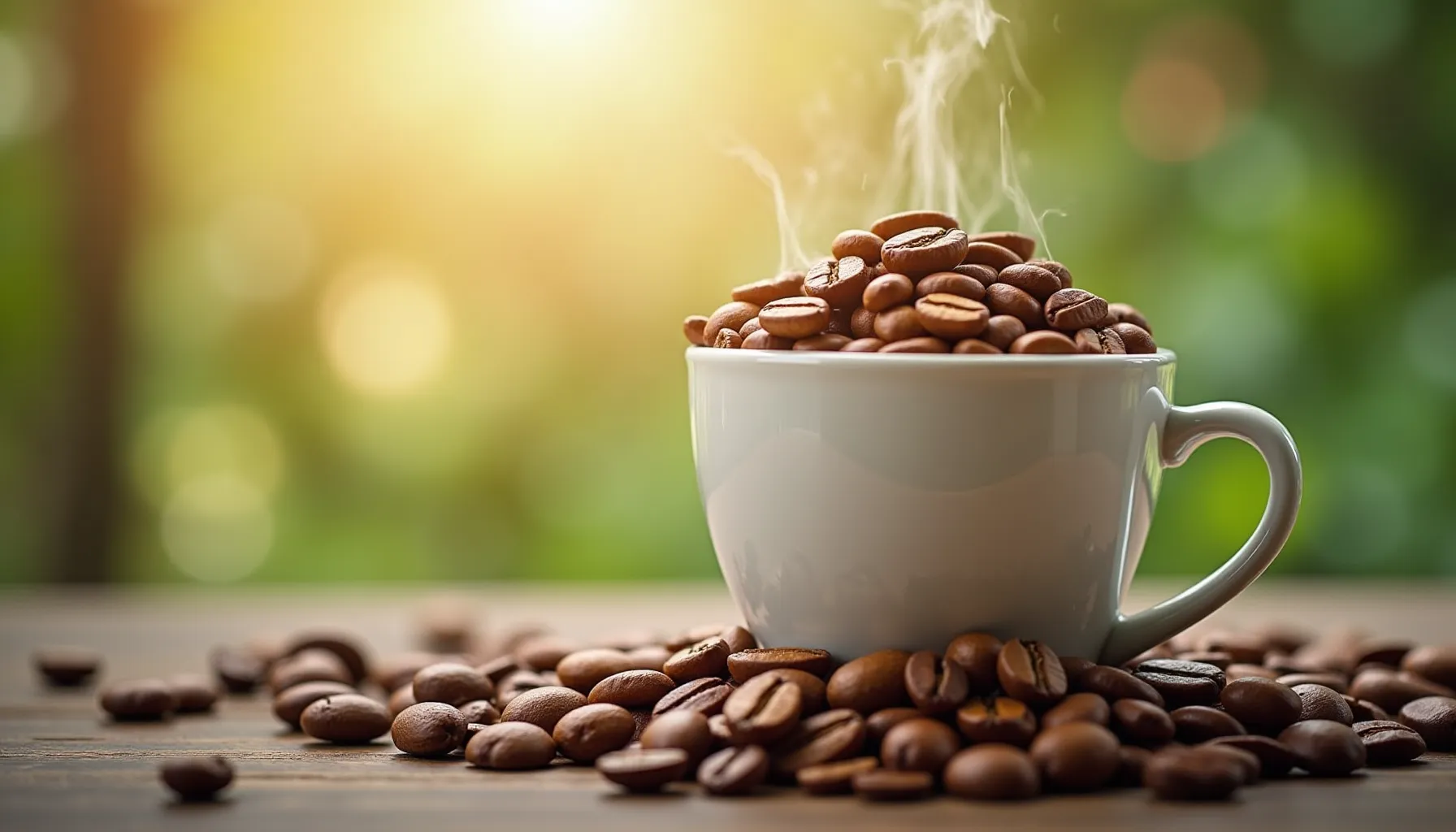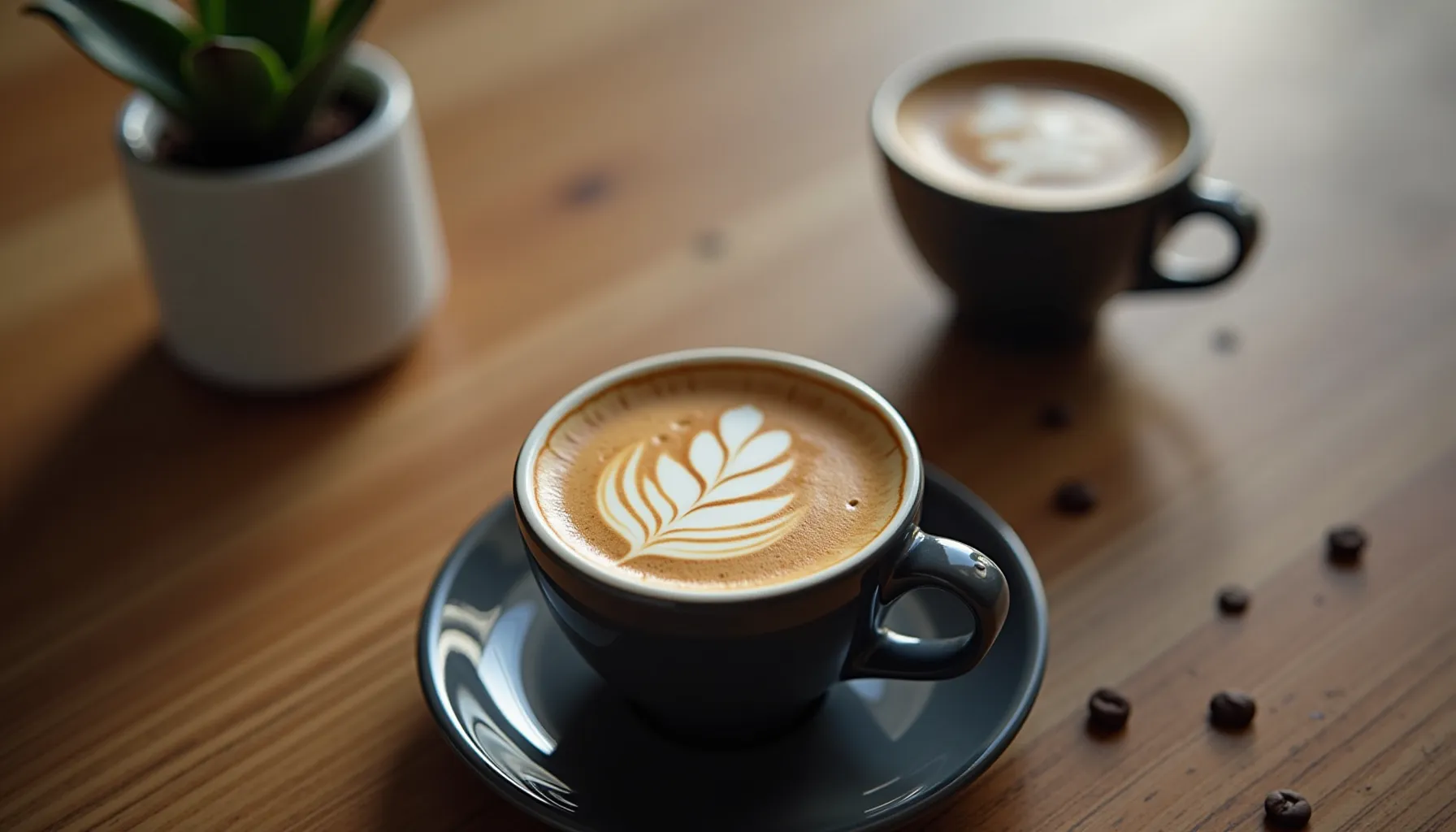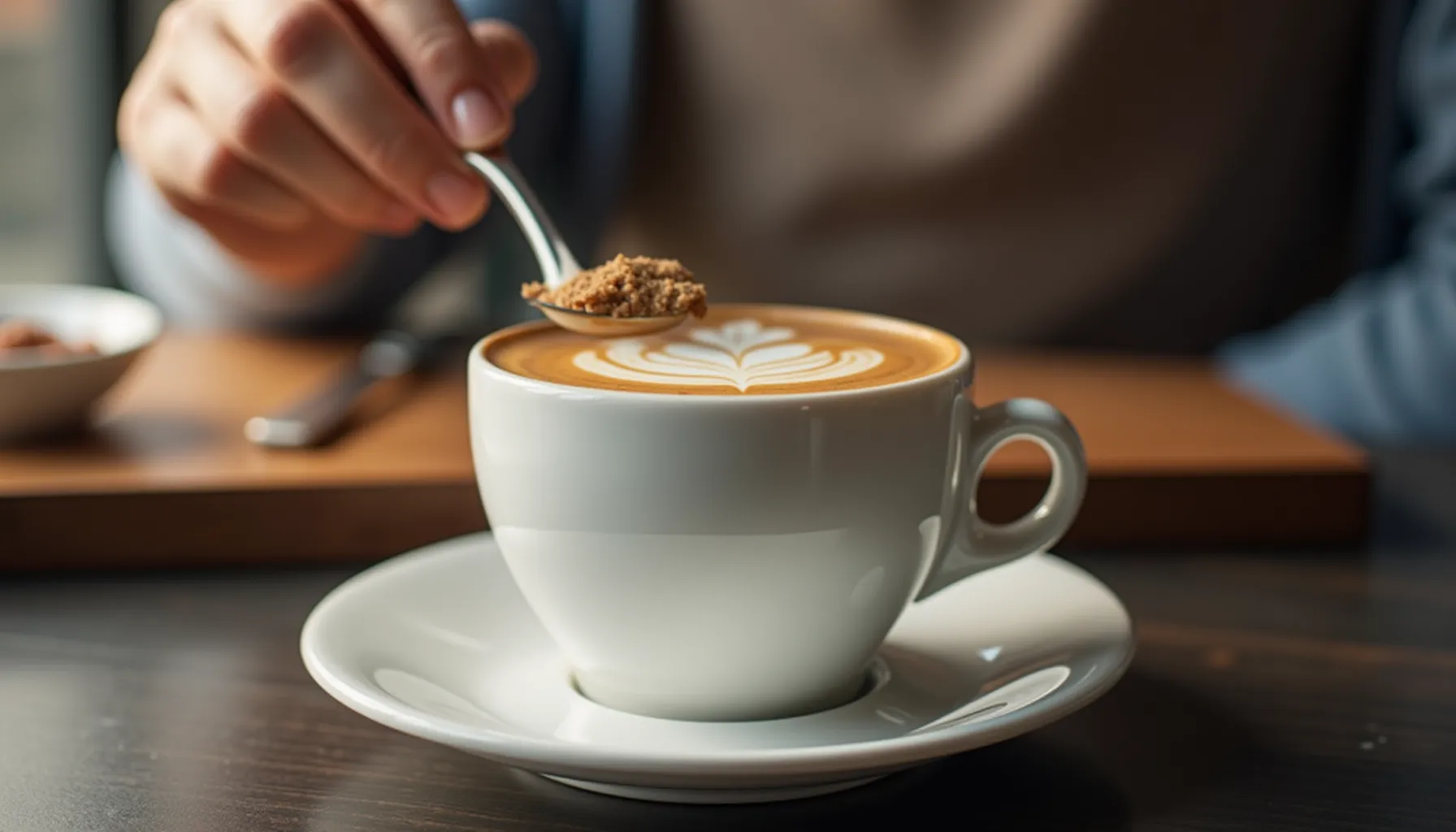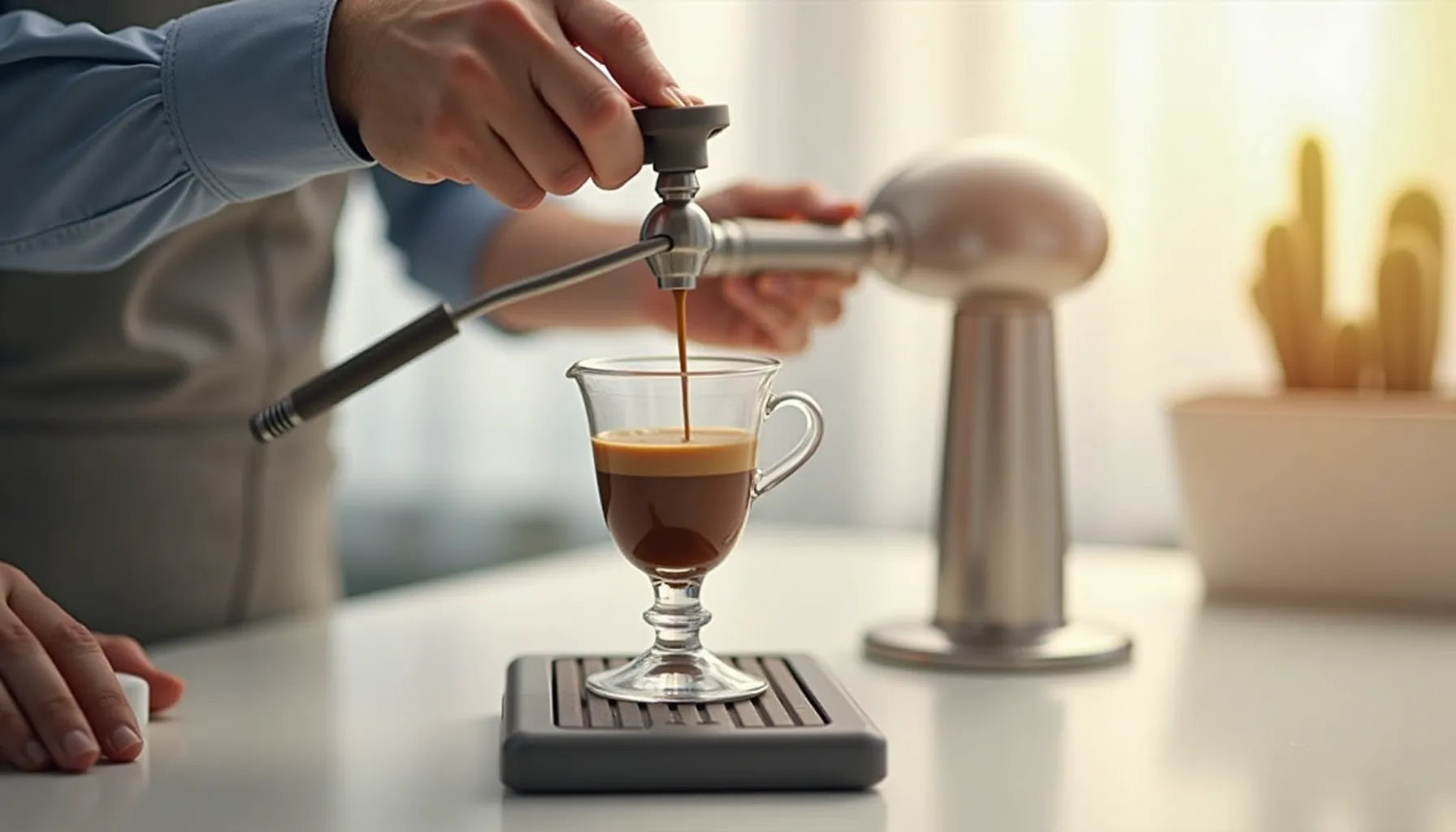Is decaf coffee a diuretic? If you've ever wondered about this while sipping your afternoon cup, you're not alone. As a coffee lover who's had to cut back on caffeine, I've found myself pondering this question more times than I'd like to admit.
The truth is, there's a lot of confusion surrounding decaf coffee and its effects on our bodies. Many of us assume that since regular coffee can send us running to the bathroom, decaf must do the same. But is that really the case?
In this article, we'll dive deep into the world of decaf coffee, exploring its impact on hydration, debunking common myths, and uncovering some surprising health benefits along the way. Whether you're a decaf devotee or just curious about making the switch, you'll find everything you need to know right here.
So grab your favorite mug, and let's separate fact from fiction in the great decaf debate!
Key Takeaways
- Understand what diuretics are and how they affect our bodies
- Discover the truth about decaf coffee's diuretic properties
- Compare decaf to regular coffee in terms of hydration
- Explore the health benefits and considerations of drinking decaf
- Learn practical tips for enjoying decaf without worrying about dehydration

Understanding Diuretics and Coffee
What are diuretics?
Ever wonder why certain drinks make you dash to the bathroom more often? Welcome to the world of diuretics! These fascinating substances increase urine production, effectively flushing out excess water and salt from our bodies.
While this might sound like a bad thing, diuretics actually play a crucial role in maintaining our body's fluid balance. They're not just found in medications; many everyday items can have a diuretic effect, including caffeine, alcohol, and even some fruits and herbs.
Caffeine as a mild diuretic
Now, let's talk about caffeine – that magical substance that gets many of us out of bed in the morning. It's well-known for its ability to perk us up, but did you know it's also a mild diuretic?
When caffeine enters our system, it stimulates our kidneys to produce more urine. However, the effect isn't as dramatic as you might think. For most people, the diuretic impact of caffeine is pretty minimal, especially if you're a regular coffee drinker.
Caffeine content: Regular vs. Decaf
Here's where things get interesting. A typical cup of regular coffee contains about 95-200 mg of caffeine, while decaf only has about 2-15 mg. That's a huge difference! This means the diuretic effect of decaf is practically negligible for most people.
The decaffeination process
Ever wondered how they make decaf coffee? It's not magic, but it's pretty close! There are several methods, but two of the most popular are the Swiss Water Process and the CO2 method.
The Swiss Water Process uses water to gently coax the caffeine out of the beans, while the CO2 method employs – you guessed it – carbon dioxide. Both methods aim to remove as much caffeine as possible while preserving the coffee's flavor and aroma.
Despite these sophisticated processes, a tiny amount of caffeine usually remains. But we're talking trace amounts here – nothing that's likely to send you running to the bathroom!
Decaf Coffee and Hydration: Separating Fact from Fiction
The diuretic myth debunked
Let's address the elephant in the room: Is decaf coffee really a diuretic? The short answer is no, not in any significant way. Numerous studies have shown that decaf coffee doesn't increase urine output any more than plain water does.
In fact, a study published in the Journal of Human Nutrition and Dietetics found that there was no significant difference in hydration levels between people who drank decaf coffee and those who drank water. So much for that old wives' tale!
Hydration benefits of decaf coffee
Here's a fun fact: your cup of decaf actually counts towards your daily fluid intake. That's right – it's essentially flavored water as far as your body is concerned. And it gets better!
Decaf coffee is packed with antioxidants and other beneficial compounds. These little powerhouses can help protect your cells from damage and may even have some long-term health benefits. Who knew your afternoon decaf habit could be doing you so much good?
Factors affecting individual responses
Now, before you go chugging decaf by the gallon, remember that everyone's body reacts differently. Some folks might be more sensitive to even the small amount of caffeine in decaf, while others might not notice any effect at all.
Your overall diet and lifestyle play a big role too. If you're eating lots of salty foods or not drinking enough water, even decaf coffee might not be enough to keep you properly hydrated. As always, balance is key!
Health Implications of Choosing Decaf
Potential benefits
Switching to decaf isn't just about avoiding the jitters. There's a whole world of potential health benefits waiting in your cup! For starters, many people find that decaf helps them sleep better and feel less anxious throughout the day.
But it gets even better. Some studies suggest that decaf coffee might help lower the risk of type 2 diabetes. It's also been linked to improved liver function. Who knew your afternoon decaf habit could be doing so much heavy lifting for your health?
Considerations for specific groups
If you're expecting a little one, you might be wondering about caffeine intake during pregnancy. Good news! Decaf can be a great option for moms-to-be who miss their daily brew. It allows you to enjoy the taste and ritual of coffee without worrying about excessive caffeine consumption.
For those with caffeine sensitivity or certain medical conditions, decaf can be a game-changer. It lets you enjoy the comfort of a warm cup without the unwanted side effects. Always check with your doctor if you have specific health concerns, though!
Taste and enjoyment factors
Now, let's address the elephant in the room: taste. I'll be honest, when I first switched to decaf, I was skeptical. But let me tell you, decaf has come a long way! Many high-quality decaf coffees now rival their caffeinated counterparts in flavor and aroma.
Plus, there's something to be said for the psychological benefits of maintaining your coffee ritual. Whether it's your morning cup or an afternoon pick-me-up, that familiar routine can be incredibly comforting. With decaf, you get to keep the ritual without the caffeine rush.
Practical Tips for Decaf Coffee Consumers
Choosing high-quality decaf
Not all decaf coffees are created equal. When shopping for beans, look for ones that use the Swiss Water Process or CO2 method. These tend to preserve more of the coffee's natural flavors. And always check the label – some brands are more transparent about their decaffeination process than others.
Freshness matters too! Just like regular coffee, decaf beans can go stale. Store them in an airtight container away from light and heat. Trust me, your taste buds will thank you for the extra effort!
Brewing techniques for optimal flavor
Here's a pro tip: adjust your grind size and water temperature when brewing decaf. Since the beans have gone through the decaffeination process, they often benefit from a slightly finer grind and cooler water temperature. This helps extract maximum flavor without any bitterness.
Don't be afraid to experiment with different brewing methods, either. French press, pour-over, espresso – each method can bring out unique flavors in your decaf. It's all about finding what works best for your palate!
Incorporating decaf into a balanced diet
Timing is everything when it comes to enjoying your decaf. While it won't keep you up at night like regular coffee might, it's still a good idea to cut off consumption a few hours before bedtime. This helps signal to your body that it's time to wind down.
And remember, balance is key. While decaf can be a great addition to your diet, it shouldn't replace water entirely. Try pairing your decaf with hydrating foods like fruits and vegetables for a well-rounded approach to staying hydrated throughout the day.
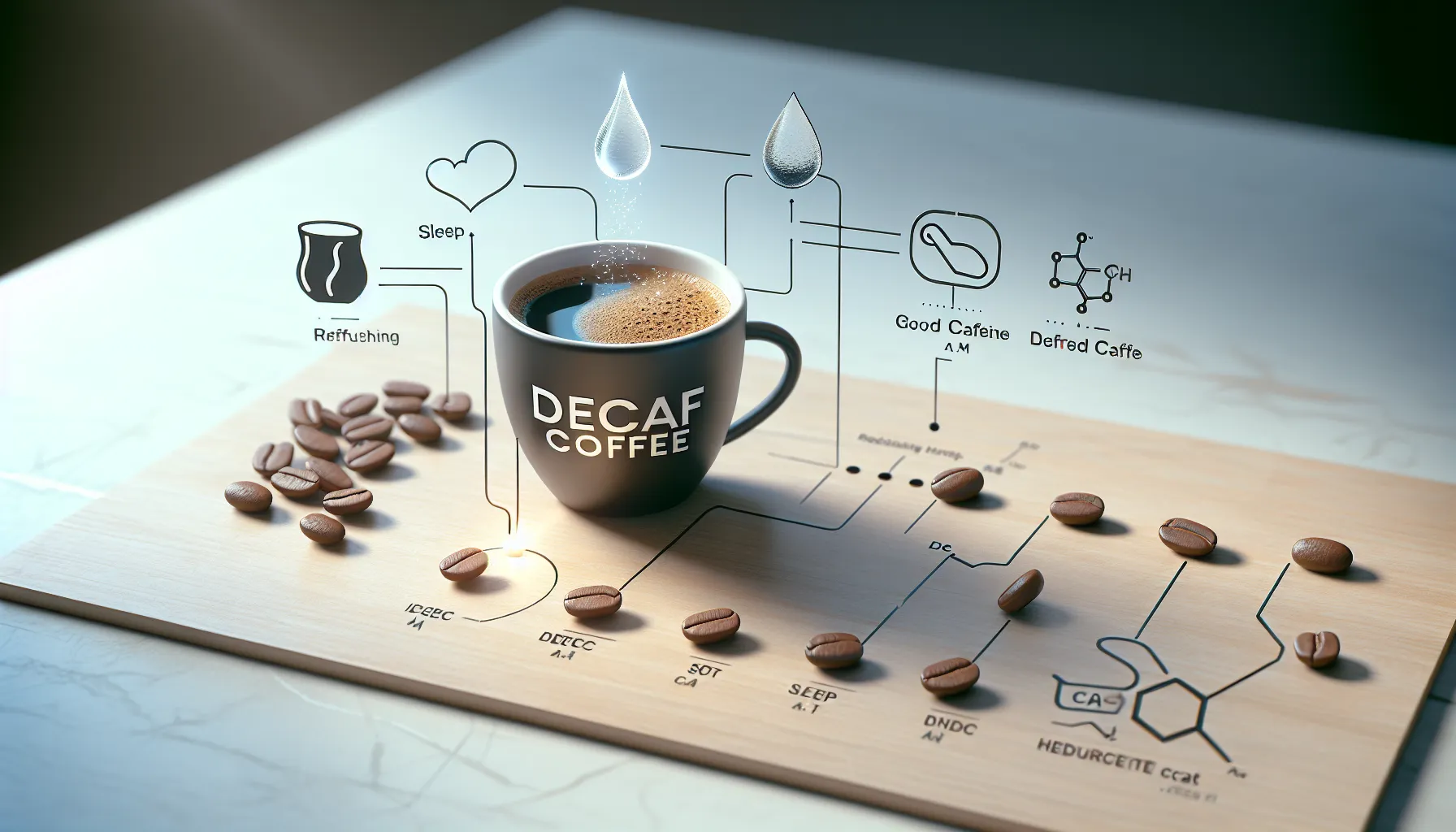
Embracing the Decaf Lifestyle: A New Perspective on Coffee
As we've journeyed through the world of decaf coffee, it's clear that this often-overlooked brew deserves a second look. From its minimal diuretic effects to its surprising health benefits, decaf has proven itself to be more than just a caffeine-free alternative.
The next time you're reaching for your coffee mug, consider giving decaf a chance. You might find that it offers the perfect balance of flavor and function, without the jitters or sleep disruptions that can come with regular coffee.
Remember, the key to enjoying decaf is finding high-quality beans and experimenting with brewing methods. Don't be afraid to try different brands and styles until you find your perfect cup. And who knows? You might even discover a new favorite morning ritual along the way.
Ultimately, whether you're a decaf devotee or just curious about making the switch, the most important thing is to listen to your body and enjoy your coffee experience. After all, isn't that what it's all about?
FAQ
1. Does decaf coffee really have no caffeine at all?
Contrary to popular belief, decaf coffee isn't completely caffeine-free. It typically contains about 2-15 mg of caffeine per cup, compared to 95-200 mg in regular coffee. However, this small amount is unlikely to cause significant diuretic effects or affect sleep patterns for most people.
2. Can drinking decaf coffee help with hydration?
Yes, decaf coffee can contribute to your daily fluid intake. Studies have shown that decaf doesn't increase urine output more than water does, making it a hydrating beverage choice. It's essentially flavored water with added antioxidants and other beneficial compounds.
3. Are there any health benefits to choosing decaf over regular coffee?
Absolutely! Decaf coffee retains many of the health benefits associated with regular coffee, including potential reduced risks of type 2 diabetes and improved liver function. It's also a great option for those looking to reduce anxiety or improve sleep quality while still enjoying the taste and ritual of coffee.
4. How can I ensure I'm getting high-quality decaf coffee?
Look for decaf coffees that use the Swiss Water Process or CO2 method for decaffeination, as these tend to preserve more of the coffee's natural flavors. Always check the label for transparency about the decaffeination process, and store your beans properly to maintain freshness.
5. Will switching to decaf affect my daily coffee routine?
Switching to decaf allows you to maintain your coffee ritual without the effects of caffeine. You might need to adjust your brewing technique slightly for optimal flavor, but many people find they can enjoy their usual coffee moments throughout the day without worrying about caffeine-related side effects.





